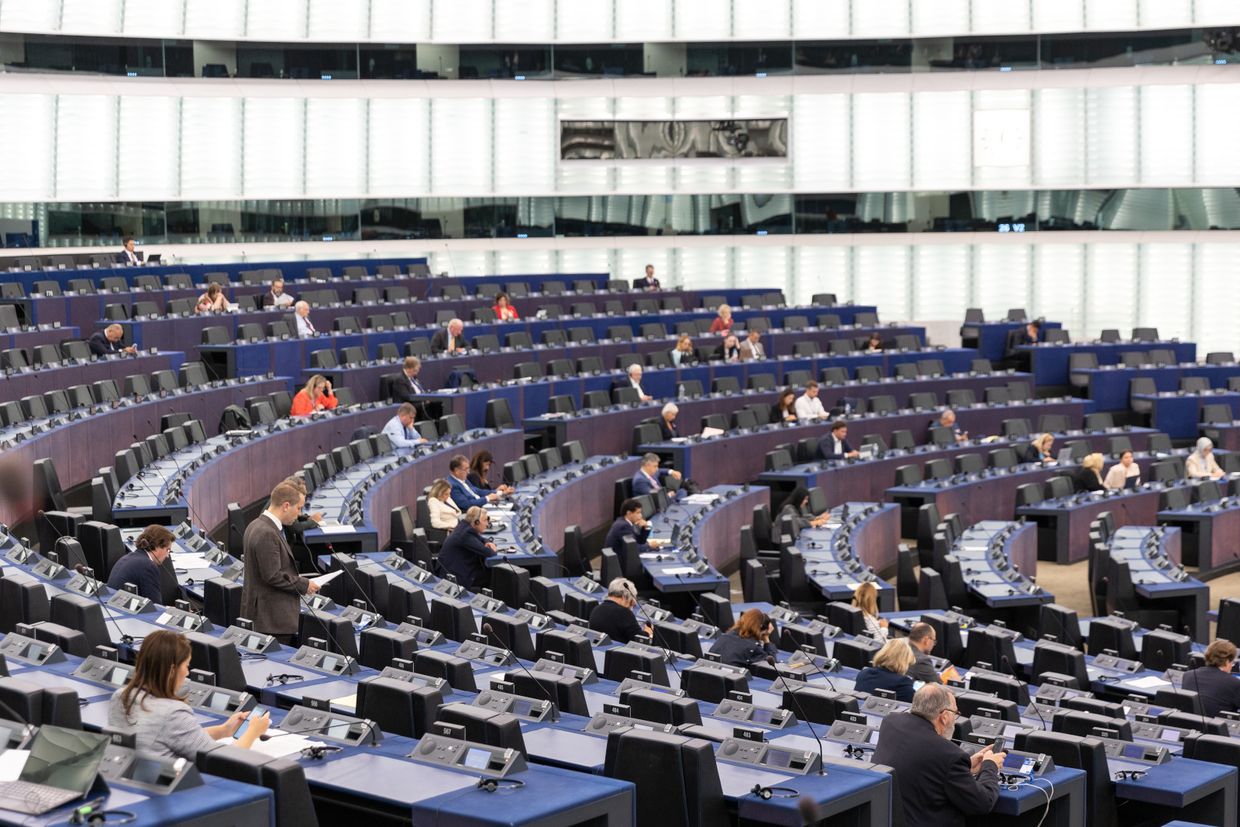"I have great hope that an agreement for a ceasefire in Ukraine will be reached this weekend," German Chancellor Friedrich Merz said on May 9, shortly before traveling to Kyiv alongside the leaders of France, Poland, and the U.K.
U.K. Prime Minister Keir Starmer, French President Emmanuel Macron, German Chancellor Friedrich Merz, and Polish Prime Minister Donald Tusk will arrive in Kyiv early on May 10.
The United States embassy in Kyiv on May 9 issued a warning that Russia could launch "a potentially significant" attack in the coming days, despite Putin's self-declared Victory Day "truce."
The sanctioned oil tankers have transported over $24 billion in cargo since 2024, according to Downing Street. The U.K. has now sanctioned more shadow fleet vessels than any other country.
The sanctions list includes 58 individuals and 74 companies, with 67 Russian enterprises related to military technology.
Washington and its partners are considering additional sanctions if the parties do not observe a ceasefire, with political and technical negotiations between Europe and the U.S. intensifying since last week, Reuters' source said.
Despite the Kremlin's announcement of a May 8–11 truce, heavy fighting continued in multiple regions throughout the front line.
Putin has done in Russia everything that Luiz Inacio Lula da Silva had been against in Brazil.
The Kyiv Independent’s contributor Ignatius Ivlev-Yorke spent a day with a mobile team from the State Emergency Service in Nikopol in the south of Ukraine as they responded to relentless drone, artillery, and mortar strikes from Russian forces just across the Dnipro River. Nikopol is located across from the Russian-occupied Zaporizhzhia Nuclear Power Plant in the city of Enerhodar.
Updated: PACE refuses to name Putin 'terrorist' in Ukraine peace resolution

Editor's note: The article was expanded after PACE published its resolution.
The Parliamentary Assembly of the Council of Europe's (PACE) table office refused to register a draft amendment calling Russian President Vladimir Putin a terrorist, Ukrainian lawmaker Oleksandr Merezhko, the amendment's co-author, confirmed for the Kyiv Independent on Jan. 30.
Merezhko and other co-authors, including five Ukrainian representatives and Swedish MP Markus Wiechel, proposed the amendment as part of PACE's resolution on "Europe's Commitment to a Just and Lasting Peace in Ukraine," European Pravda reported earlier the same day.
Following the public outcry, PACE included a mention of Putin in the published resolution but without labeling him a terrorist.
The resulting document refers to "Vladimir Putin's totalitarian regime and its war on democracy, as well as the necessity to counter the erasure of cultural identity in war and peace; it believes that a lasting peace is only possible if the Russian Federation abandons its imperial ambitions and performs decolonization."
PACE's table office explained its initial decision to reject the amendment in full by saying that "calling Putin a terrorist is against the rule of procedure because it 'insults his dignity,'"Merezhko told the Kyiv Independent.
"The Table Office is obliged to rule this amendment out of order as designating a Head of State as a terrorist is tantamount to using offensive and insulting terms that are inappropriate in an official Assembly document," the official reply by the table office read.
"I absolutely disagree with such misinterpretation of the PACE’s rules of procedure, because the term 'terrorist' is not an insult, it’s a legal term used in international legal documents, including international treaties," Merezhko commented.
The lawmaker also pointed out that a previous PACE resolution recognizes Russia as a "terrorist regime," adding that the issue should have been resolved by voting among PACE members, not with a decision by the table office.
Russia's full-scale war against Ukraine, which nears its third anniversary, has been accompanied by widespread destruction of Ukrainian residential areas and infrastructure, heavy civilian casualties, and numerous cases of torture and repression in the occupied territories.
"In my opinion, what happened is an act of political censorship which undermines the reputation of PACE and the Council of Europe," Merezhko said.
PACE is the parliamentary arm of the Council of Europe, an international organization of 46 countries, including Ukraine, that promotes democratic values and human rights. Russia was expelled from the body in early 2022 in response to its invasion of Ukraine.
The assembly has issued a number of resolutions regarding Russia during the full-scale war, calling for the establishment of an international special tribunal to hold Russia accountable for war crimes and recognizing Putin as an illegitimate dictator.
Chris York contributed reporting to this article.
Most Popular

After 3 years of full-scale war in Ukraine, Europe announces plan to ban all Russian gas imports

Ukraine, Europe's ceasefire proposal includes US security guarantees, no recognition of Crimea, Reuters reports

Journalist Roshchyna's body missing organs after Russian captivity, investigation says

After Russia's deadly attack on Kyiv, Vance reposts denunciation of Zelensky

Ukrainian sea drone downs Russian fighter jet in 'world-first' strike, intelligence says
Editors' Picks

How medics of Ukraine’s 3rd Assault Brigade deal with horrors of drone warfare

As Russia trains abducted children for war, Ukraine fights uphill battle to bring them home

'I just hate the Russians' — Kyiv district recovers from drone strike as ceasefire remains elusive

